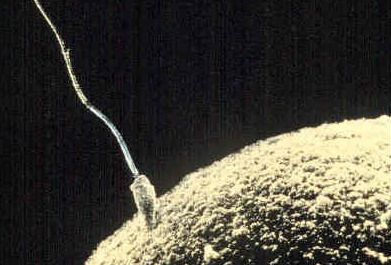Male Birth Control Pill? Japanese Scientists Find Popular Organ Transplant Drug Causes Temporary Infertility

Scientists in Japan believe they’ve found the drug necessary to create a male birth control “pill” in an existing medication used to suppress the immune systems of organ transplant patients. Unlike other male birth control research which focuses on reducing sperm count, this drug works by targeting sperm function and making them unable to fertilize an egg.
In a recent study published in the online journal Science, Japanese researchers explained how the immunosuppressant drugs, Cyclosporine A (CsA) and FK506 (tacrolimus), have a previously undocumented side effect that could make them highly effective in controlling male fertility.The drugs work by targeting the enzyme calcineurin, which helps prevent the immune system from attacking transplant organs, The Los Angeles Times reported.
However, the team noted that a specific version of the enzyme was found only in sperm cells. Knowing this, researchers conducted a series of animal studies to identify the drug’s potential effect on male fertility. They created mice that were genetically altered to be unable to produce PPP3CC, a protein found specifically in the sperm version of calcineurin. These mice were referred to as the “knockout” animals.
The team then observed the behavior of both the knockout mice and control mice, and noted that although both groups of mice mated with females, the knockout mice were unable to impregnate them. Further investigation into the knockout mice’s mysterious infertility revealed that the absence of PPP2CC affected the sperm's ability to successfully maneuver inside of a female animal. The part of the knockout mice’s sperm which connected the head to the tail was more rigid than that of normal mice. As a result, the knockout’s sperm was deficient at “hyperactivation,” a particular type of movement that requires the sperm’s tail to propel it towards the egg. Without egg penetration, fertilization never occurred.
The team then gave the immunodeficiency drugs to a new set of mice to see if this could bring about the same results as observed in the genetically altered animals. At first, no difference was observed as the drugs have no effect on the already mature sperm cells. However, after about two weeks, all the regular mice that were given CsA or FK506 produced the same rigid sperm as the genetically altered mice. Even more exciting, the mice’s sperm function returned to normal just one week after they stopped taking the drugs.
The results suggest a major step towards the creation of a reliable form of male birth control. Another notable potential male birth control drug in the works is Vasalgel, a non hormonal polymer gel that urologists can inject into the tube in the penis that sperm swim through. According to Elaine Lissner, executive director of the Parsemus Foundation, an organization that works to advance innovative and neglected medical research, Vasalgel works more or less like a gel vasectomy.
“You often will hear about male contraceptive being five to 10 years away, which to me means possibly never,” Lissner told Medical Daily. “Vasalgel is as soon as three years away. A lot hinges on the reversal studies we’re doing now, because if it’s not reversible, a gel vasectomy is not that exciting; reversibility is key.”
Other attempts at male birth control drugs focus on identifying and then disabling the hormone responsible for fertilization.
For now, CsA and FK506 will need to be tested on humans to ensure that it has the same effect on human sperm.“Considering these results in mice, sperm calcineurin may be a target for reversible and rapidly acting human male contraceptives,” the researchers concluded.
Source: Miyata H, Satouh Y, Mashiko D, et al. Sperm calcineurin inhibition prevents mouse fertility with implications for male contraceptive. Science. 2015.
Correction: An earlier version of this story incorrectly spelled Parsemus Organization. It has now been corrected.



























